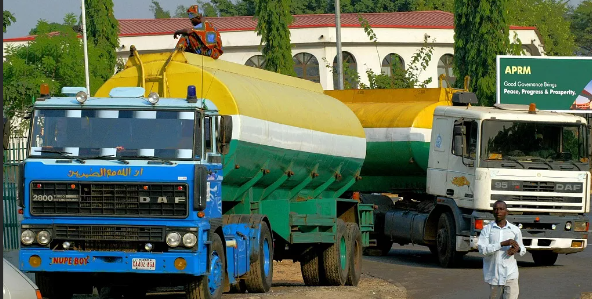In a recent revelation by Akin Akinrinade, Chairman of the Independent Petroleum Marketers Association of Nigeria in the Satellite Depot branch, the cost of petrol trucks has surged from N7 million in May to an alarming N25 million. This exponential increase, as reported by Infostride News, is attributed to inflation induced by poorly managed foreign exchange rates, significantly impacting the downstream oil sector’s operational landscape.
Akinrinade pointed out that the mismanagement of foreign exchange rates has adversely affected the landing cost of Premium Motor Spirit (PMS), commonly known as petrol, thereby influencing the pump price. The Chairman emphasized the unpredictability of the business environment, highlighting the drastic spike in the cost of doing business within the sector. He stated, “A truck of petrol that was N7 million in May this year is now N25 million. Business is really unpredictable now. Bank lending rate is also very high, contributing to the high cost.”
Adding to the complexity of the situation, Infostride News draws attention to the insights shared by Mele Kyari, the Group Chief Executive Officer of the Nigerian National Petroleum Company Limited (NNPCL), during the Energy Labour Summit in Abuja in October 2023. Kyari underscored that foreign exchange challenges have hindered private companies (marketers) from importing petroleum products, resulting in the NNPCL becoming the exclusive importer of petrol.

Kyari explained, “We are presently the sole company responsible for importing petrol into the country. None of these private entities can carry out this task at the moment. Their ability to access foreign exchange is limited, unlike us, who generate foreign exchange, giving us the advantage of access to foreign currency.”
Interestingly, Infostride News notes that this situation stands in stark contrast to earlier plans announced in June 2023, shortly after President Bola Ahmed Tinubu assumed office. Kyari had mentioned that private companies would be permitted to import fuel, aligning with President Tinubu’s efforts to deregulate the fuel market and alleviate the financial burden on the government. The decision involved discontinuing crude oil swap contracts and transitioning to cash payments for fuel imports, allowing private entities to participate in the fuel importation process.
However, despite the initial plan to involve private companies, a shift in circumstances has led to the Nigerian National Petroleum Corporation Limited (NNPCL) becoming the exclusive importer once again. This shift has ramifications, affecting not only the dynamics of the fuel market but also contributing to a ripple effect in various sectors of the economy.
Already, Infostride News reports that commercial transporters have increased their fares due to the soaring petrol costs, particularly with Christmas Day around the corner. Road transportation fares between Abuja and Benin City, as well as Abuja and Lagos, have risen to a range of N20,000 to N27,000, depending on the transport company.
Private car owners in Abuja are also feeling the impact, with an increased demand for fuel-saving products at petrol stations. Many are opting for these products to mitigate the rising fuel costs, especially those who commute daily for work. As the Christmas holidays approach, there is a looming concern that the high demand for interstate travel will further escalate costs, affecting the already strained budgets of many Nigerians.
This scenario unfolds against the backdrop of a broader economic context where the average income of Nigerians has not seen a corresponding increase, amplifying the challenges posed by the current macroeconomic conditions. As Infostride News continues to monitor these developments, the evolving landscape of Nigeria’s fuel market prompts critical questions about sustainable solutions and the potential long-term impacts on the nation’s economy.
Support InfoStride News' Credible Journalism: Only credible journalism can guarantee a fair, accountable and transparent society, including democracy and government. It involves a lot of efforts and money. We need your support. Click here to Donate
